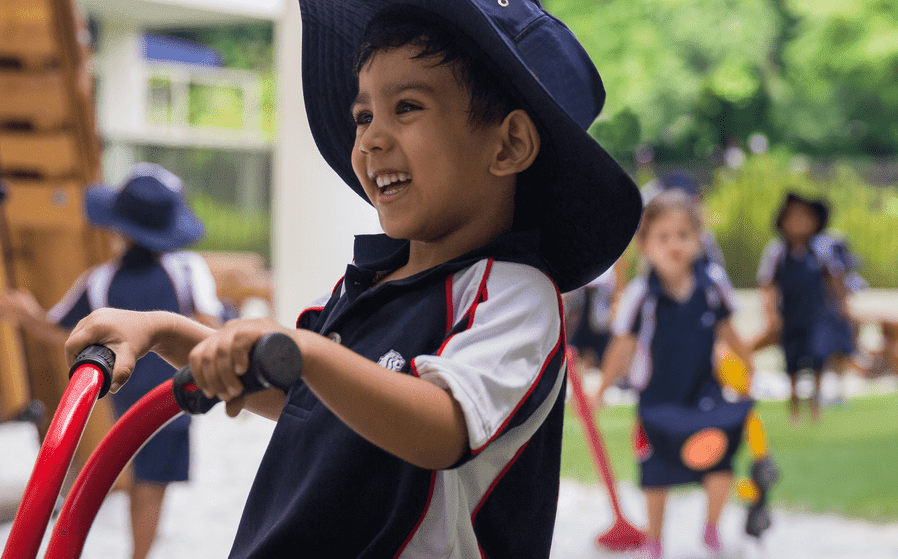5 Ways to Teach Small Children Empathy
When asked about the most important things to teach children in their early years, many parents and teachers answer “empathy.” Though it’s good for a young child to learn basic language, numerical, and reasoning skills before they even start primary school, their adult role models should put the focus on social skills like being able to empathize with others.
Empathy, or the ability to understand and relate to someone else’s perspective, is a valuable virtue that a child can practice all their life. The capacity to put oneself in another’s shoes is essential to building compassion, a sense of justice, and a desire to change the world for the better—all of which are things that a parent would likely want to see their child learn throughout their school experience and journey in life.
However, since empathy starts as an abstract notion for a child, it can be quite the challenge for a parent to teach them what it means and how to practice it. As a parent to a preschool-aged child, what can you do to make the concept both easy to grasp and easy for your child to demonstrate? Here are five tips that you can apply when you’re teaching your child how to be more empathetic.
Bring Up the Emotional Element in Your Everyday Interactions
The very first thing you can do to concretize the idea of empathy for your child is to consciously bring emotions into the discussion. That means asking them questions like “how did you feel?” and “how do you think someone else feels when that happens?” during everyday moments like playtime or when they’re recapping their day for you.
Let your child describe their feelings and how they perceive others’ emotions to the best of their ability, teaching them new words for new experiences. Encourage them to own their emotions and to acknowledge other actors in their situation by practicing the “I feel,” “you feel,” and “they feel” model of communication. Little by little, they will develop their own vocabulary for more emotionally complex situations and be guided towards the right responses.
Let Them Learn in a Diverse School Environment
Another thing you should do as a parent if you want your child to develop empathy is to enroll them in a culturally diverse environment. For example, when looking for options for childcare in Singapore, make an international preschool part of your list.
In a culturally diverse preschool, your child will learn many foundational lessons that will carry through to their primary school education. These include how to engage with people from different cultures and walks of life, how to respect other people’s values and beliefs, and how to find common ground with others even if it seems like there’s a world of difference between them and your child.
 |
| Let Them Learn in a Diverse School Environment |
Look for Children’s Books, Media, Music, and Entertainment That Highlights Empathy
You may feel overwhelmed about how much you have to teach your child with regard to something as complex as empathy. But you don’t have to do so completely from scratch—there are many works of children’s literature, media, and entertainment that you can use as learning resources. You can search for children’s books, movies, TV shows, music albums, games, and other works that deal with addressing human emotions in healthy, honest, and age-appropriate ways.
From their toddler years to the time when they’re learning how to read, children love visually and audially appealing content. Invigorate their interest in learning about human emotions by choosing books with vividly drawn pictures, songs with catchy rhythms and wordplay, and the like.
Encourage Them to Help Out at Home
Yet another simple but highly effective way to develop your child’s sense of empathy is to encourage them to help out at home from an early age. If your child can learn to do chores with you or their siblings, they will be able to perceive when other people are in need, in addition to nurturing their own sense of responsibility.
Let your child know when you need a helping hand and embolden them to support other family members when they’re cleaning up, cooking, or doing other household duties. Praise your child for both their empathy and their good behavior, and let them know that their actions have contributed to a happy and pleasant family life.
Model Empathetic Behavior in Front of Them
Children engage in social referencing, or tailoring their own reactions and responses based on what they see from a parent or other adult model, and they can do this as early as when they’re six months old. They will continue to do so even well beyond their childhood. Knowing that you will be a lifelong teacher to them, pay special attention to how you speak and act in front of them. It is from your behavior that they will learn the value of empathy across the different life stages.
Don’t forget the importance of practicing what you preach and being consistent with the values that you want your child to imbibe. For example, if you tell them that it’s important to respect other people’s boundaries and to listen when others say that they’re anxious or uncomfortable, take special care not to breach their own boundaries or to invalidate them when they express their own emotions.
Final words
Developing empathy is a lifelong process that even adults have to master. Oftentimes, you’ll find yourself learning a lot of new things about the world and about how people process their emotions at the very same time that you’re teaching these concepts to your child.
Of course, that’s totally all right—in fact, it will be extremely enriching for both you and your youngster. Just remember that your responsibility is to take the lead as the adult and to make sure that an empathetic disposition takes root early on in your child’s life.

Thanks for your sharing...
ReplyDelete